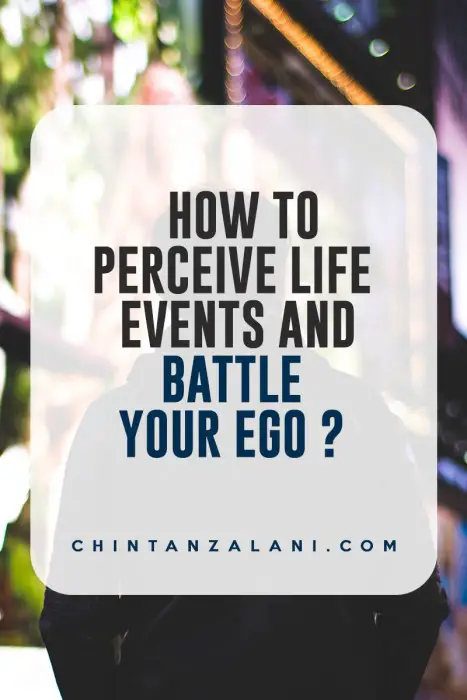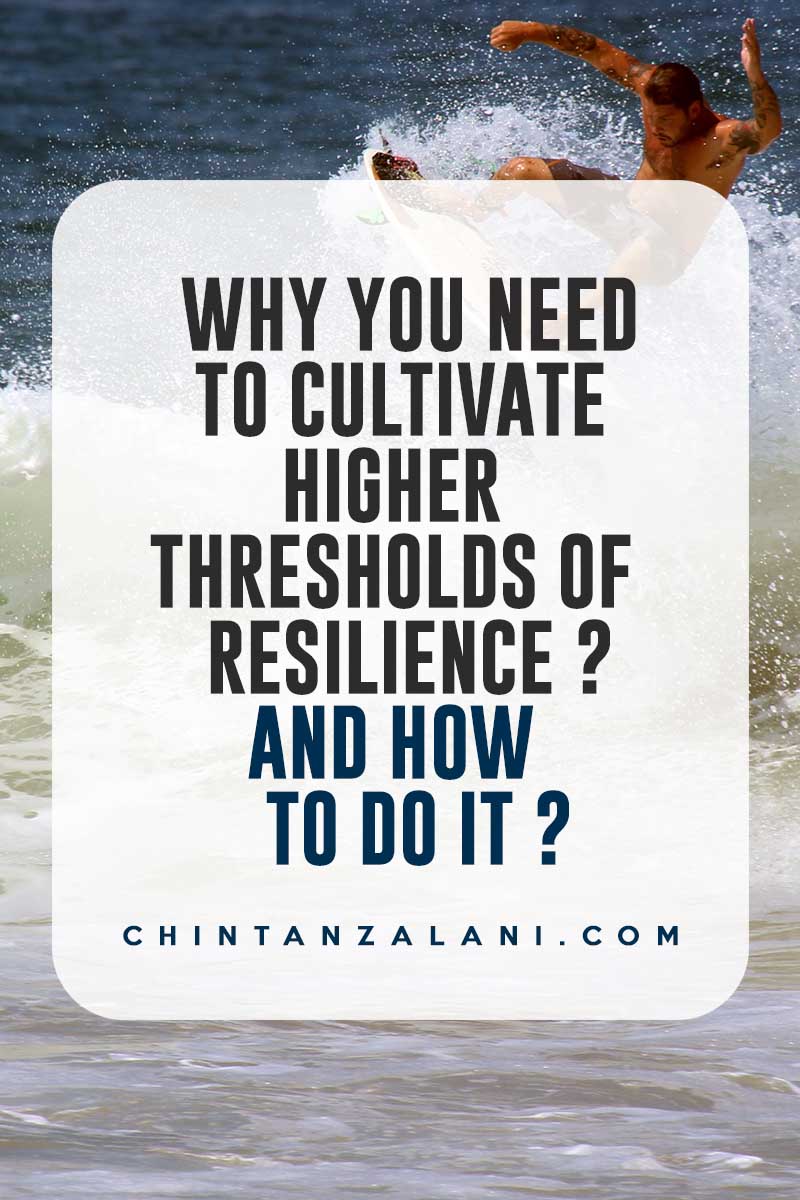It was a huge burst of emotions.
We were yelling at each other.
The subject of the argument was sensitive, and neither of us was comfortable talking about it: money.
Then an unusual, but petty event transpired.
Or so I thought.
In a few hours, I felt that the event meant nothing (although I was emotionally shaky). But the person on the other side was fuming all kinds of gases and had given it a permanent standing in their mind. They attached a meaning to the anger, and my actions left an imprint on their self-esteem.
Today, let’s address this mismatch of emotions through the ideas of perception, ego, and permanence. We’ll take help from statistics, Stoicism, and material sciences along the way.
Perception: Events have no inherent meaning. The important aspect is how you feel about it.
Remember the first time you farted?
Unless you’re a wacko, I trust you don’t. But it must not have been highly joyous. Neither would it have been embarrassing.
Yet, as adults, we look negatively at the biological function.
We look at people that fart with contempt and run away from them. It’s because farting, as an event, has a prior context in your memory.
As you grow up, your memory bank fills up with many templated responses to such generic events.
If you hang around any self-improvement literature, you might already know that most of your life consists of ordinary events like eating burritos and farting.
That’s why personal development demigods tell you to cherish those small moments (and be grateful for your pillow?).
No, but seriously:
If the bell curve represents your life, most of your time is spent in the middle.
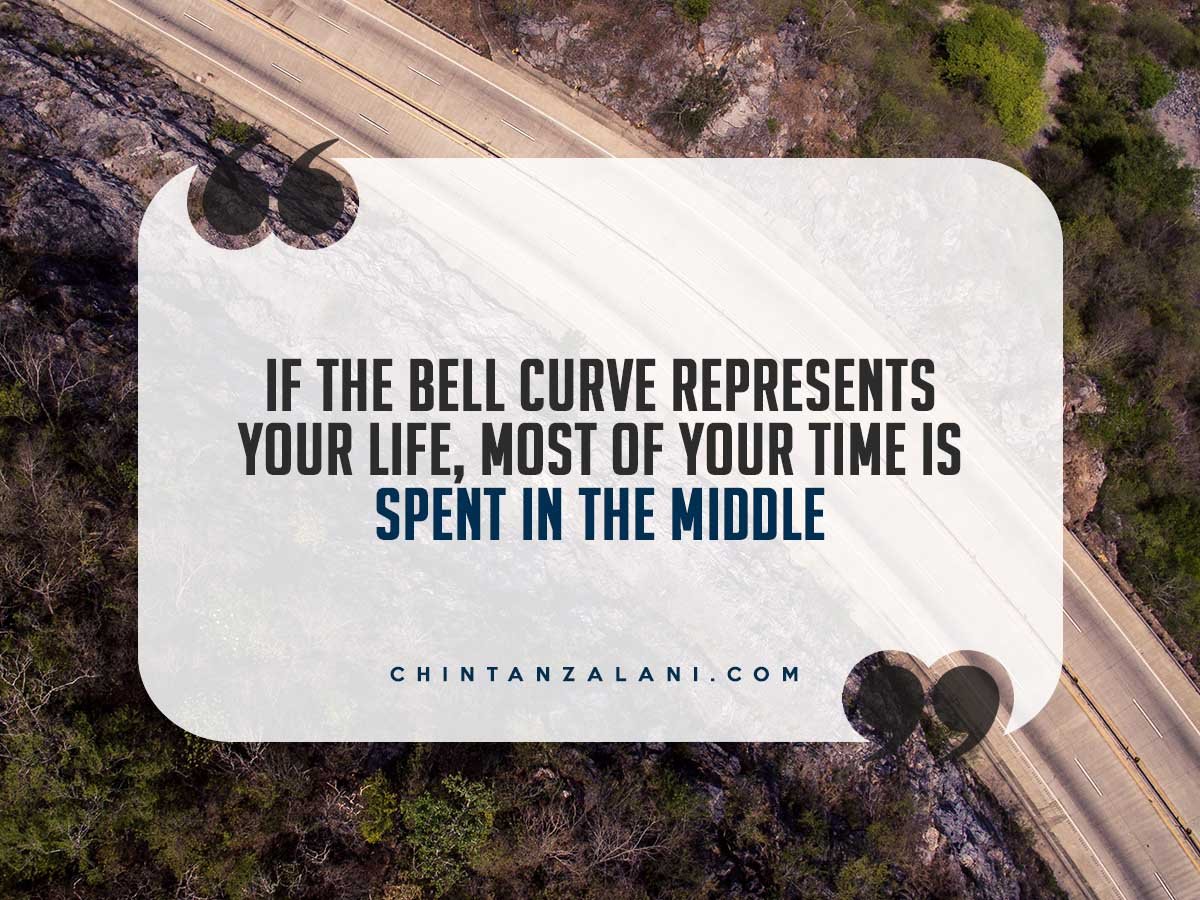
Now, here’s a problem –
If you involve yourself in any worldly activity, you’ll need to invest your energy, time, and emotions. While doing it, you’ll meet people that are ungrateful, selfish, and some who even hate Pizza!
It’s because people come from different backgrounds with different beliefs, values, and life experiences. Everybody doesn’t like their Pizza with toppings – so you’ll have conflicts.
You’ll run into heated arguments. But how will you respond to it?
Two possible scenarios:
- you attach meaning to the fight, feel violated, and let it affect your ego.
- you dismiss such disputes as outbursts and continue having your way,
Woah! That’s a tricky situation you’re treading along.
To understand the nuances, let’s look at a few aspects that govern your perception of external events:
- your current level of stress,
- prior exposure to similar circumstances,
- your level of emotional investment leading up to the event.
Obviously, your yardstick to acknowledge an event as ‘ordinary’ and move on with your day is different than mine.
If you don’t follow politics, then Trump raging about North Korea’s missile launch might not mean anything you.
But, what if someone adds context by telling you that the event might put millions of lives into danger?Thought so.
Kevin Simler drew a beautiful figure to explain how we allocate meaning to things (if you’re a nihilist, you’ll love reading his guide to meaning):
“A thing X will be perceived as meaningful in context C to the extent that it’s connected to other meaningful things in C.”
Meaning is ‘pointing,’ and more branches from an object indicates that it has more meaning.

Now, let’s jump back to applying the above to daily life.
If you have heard of the Stanford marshmallow experiment, you’d know that delaying gratification is key to a successful and satisfying life.
To further expand it, let’s talk about distressing events.
When you run into an argument around sensitive subjects, you feel unpleasant. If either of the person involved loses their temper, then shit hits the fan.
After the eventuality, you’ll all go back to your respective homes. With a cozy blanket and a warm cup of hot chocolate in your hand, your mind will start carving patterns.
It will put an effort to find similar themes that have transpired in your life. In the absence of relevant information, you’ll fall back to instances from popular culture (like an emotional scene from The Pursuit of Happyness).
Else, you might even superimpose deeply rooted insecurity to make sense of the event and understand why you feel hurt.
You see, the mind is a funny creature. It gets seduced with a ‘why’ and actively pursues it.
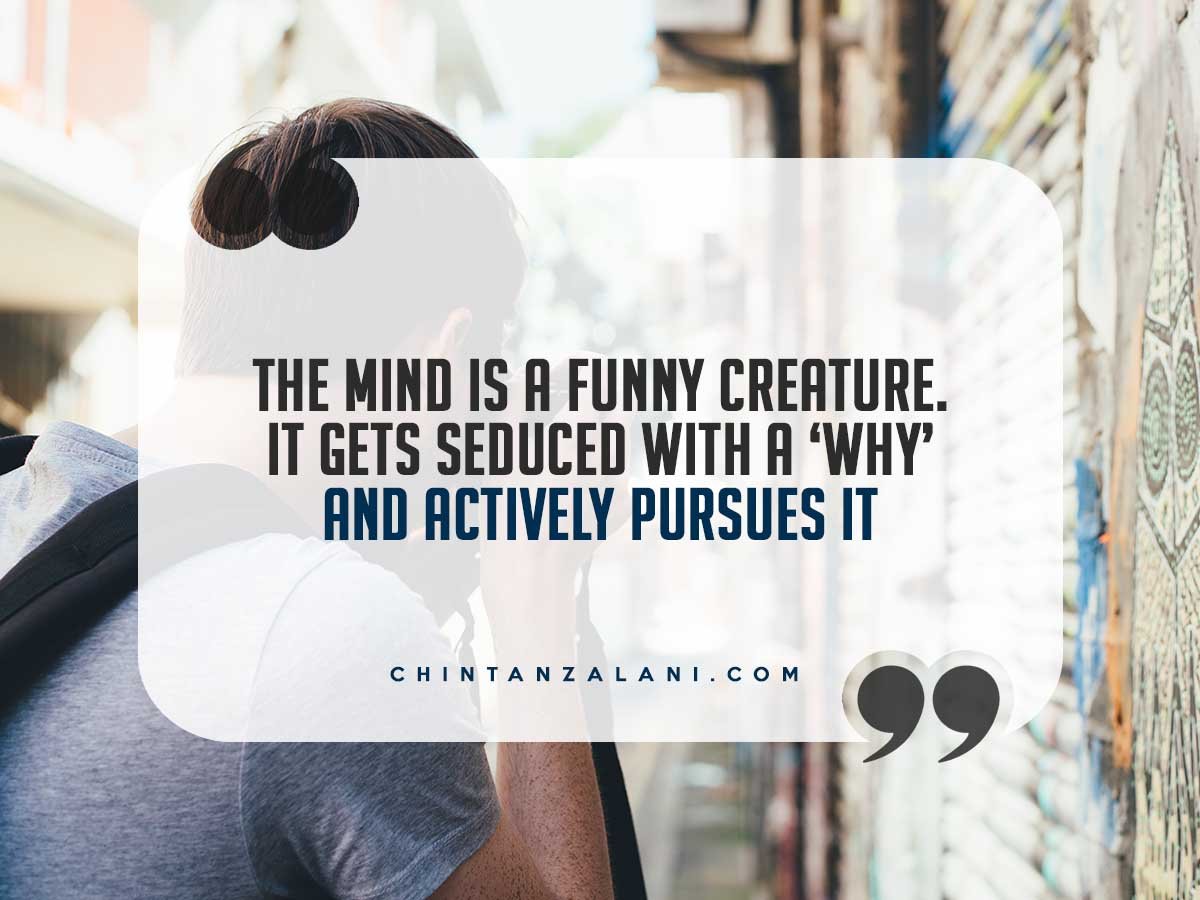
Such events don’t deserve a space in your mind in the first place. They were weak moments for a set of individuals, which resulted in chaos.
If you isolate a bad event and add historical context to it from your life/pop culture, you’re committing a fallacy.
If a specific event feels traumatic and leaves an impact on you, it’s likely that you’re making associations from your past to it (that’s what people fancy as ‘baggage’).
Needless to mention, it will hinder your progress. You need to cultivate resilience to bounce back from such trauma and get on with your day.
Maintaining higher standards for the kind of events that trouble your mental state and leave an ‘imprint’ on you is essential to living a balanced, high-quality life.
The more you dismiss such (temporary) stressful events as ‘normal,’ the more space you create for extraordinary moments.
You won’t touch the delicious tail end of the bell curve unless you expand your perception of events as ‘average.’
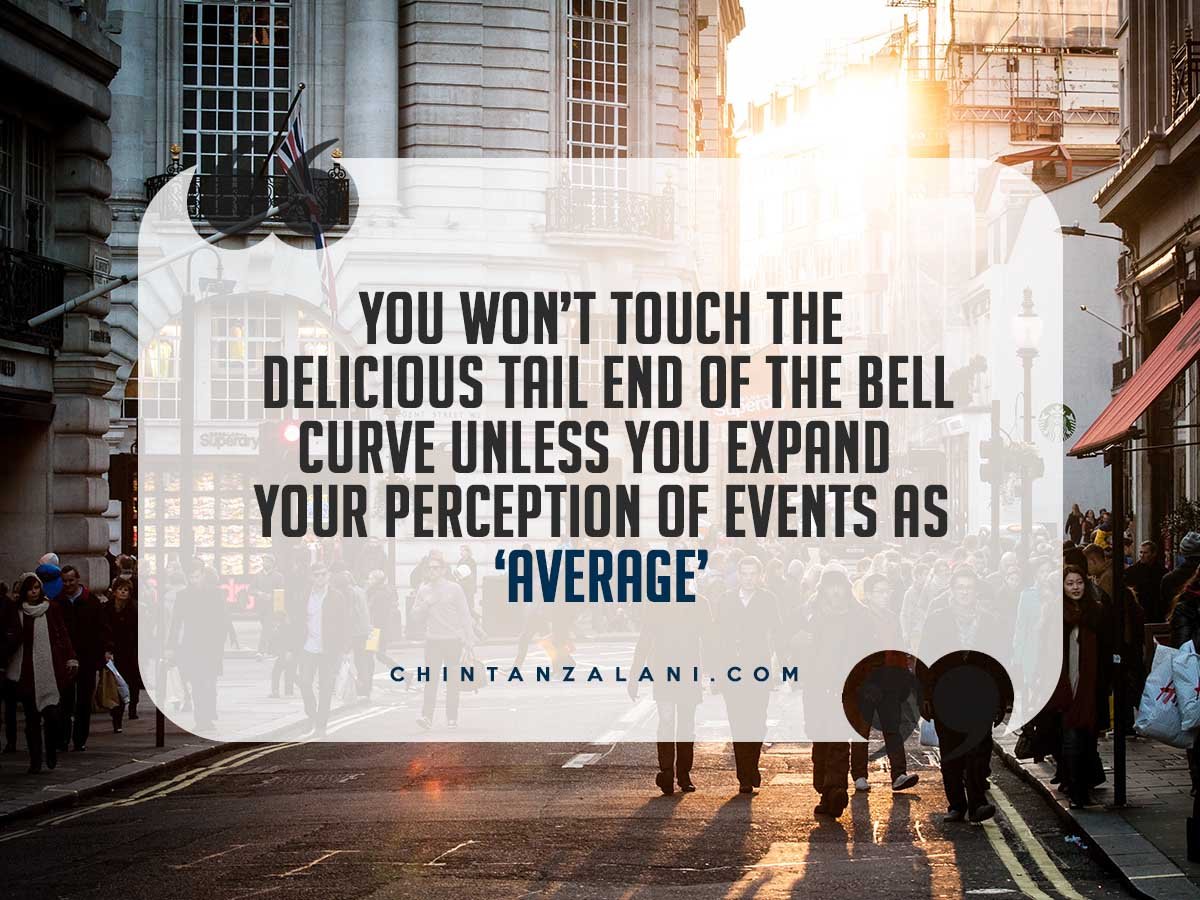
Your next question might be:
“Pretty cool man, but what about my ego? You know that dawg disrespected me.”
Okay buttercup, I got you covered in the next section.
As they say, having a healthy amount of ego is essential; but what is ‘healthy’?
Author Ryan Holiday penned down the following colloquial definition of ego – “an unhealthy belief in your own importance.”
But we live in the era where self-help circles regard self-love and individuality as a panacea. Falling in love with your flaws is considered nutritious for your soul. The flaw, in such a mindset, is a disregard for opportunities that can further your growth.
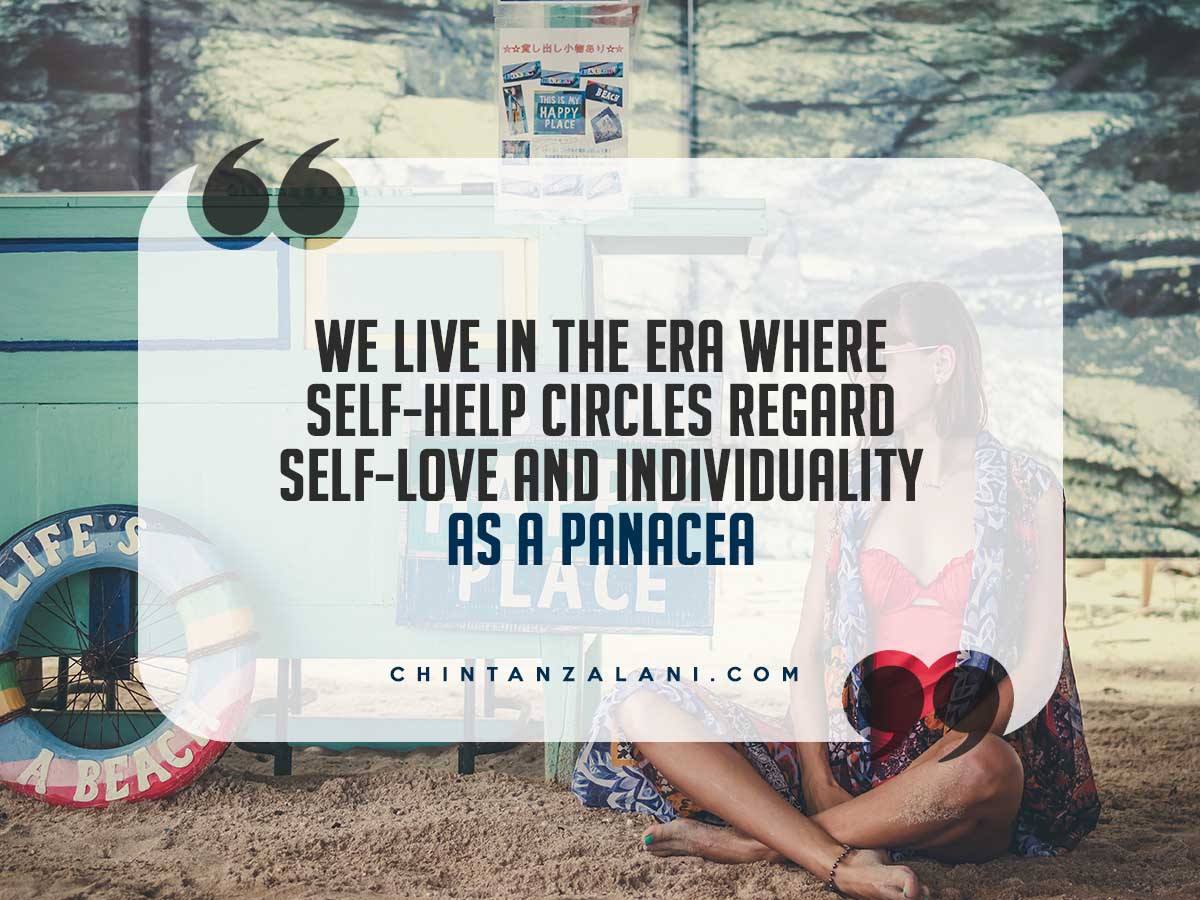
Such an obsessive “me” culture results into carrying a high sense of self even before you’ve developed a strong core skill set.
Since you already have a meaty self-image, you operate from high ground on what’s worth your time – all while hiding from what’s holding you back. You might even create walls around you that prevents genuine connection with the outside world.
And guess what happens when taken too far?
You’ll make assumptions to suit your image and anything that doesn’t fit your narrative is automatically omitted – because you’ve stopped trusting outside sources of information.
You don’t care about how the world works and what’s your rightful duty in it.
You already feel that you deserve more and better. So you won’t consider the repercussions of your actions on the people and establishments around you.
Here’s how Ryan Holiday puts it:
“Ego is the enemy of what you want and of what you have: Of mastering a craft. Of real creative insight. Of working well with others. Of building loyalty and support. Of longevity. Of repeating and retaining your success. It repulses advantages and opportunities. It’s a magnet for enemies and errors. The second you believe in your greatness, the artist Marina Abramovic explains, that’s the death of your creative career.”
If ego is such a delusional entity, then does it deserve no merit in your life?
That depends on your understanding of the term. People say that ego pushes us to do well and “prove the naysayers wrong.”
I would substitute that with being confident in your potential, having a growth mindset, and still rationally accepting external information.
When people say “have a healthy amount of ego” I can’t digest it because I know most people rub it off the wrong way. They will measure their ego with money and make comparisons with immediately accessible anchors around them.
If you feel inadequate about the work you pursue, despite having requisite skills, then you’re battling with impostor syndrome. I won’t go into its depth in this article, but the solution isn’t as simple as “have some ego.”
Life is about having strong convictions and remaining open to challenging your beliefs at the same time – ego doesn’t let you remain flexible.

Next, let’s come to relationships – here’s why you shouldn’t let ego creep in.
- If it’s personal, then there’s no point in attaching meaning to outbursts and labeling it as a ‘bruise’ on your life.
- If it’s professional, then there are clear-cut metrics and performance indicators for measuring the level of your work. Use them to prove your worth.
Fear of failure, rejection, and uncertainty are all rooted in your ego. It’s a short-term fix that creates a shield around you to protect your reality.
You know what’s rare in the world?
Humility.
I recommend you to practice ego shredding while I work on my digestion.
Now, what should you do when you encounter a person that has an unhealthy amount of ego and can’t see through it?
Marcus Aurelius gives us the perfect recipe.
“When you wake up in the morning, tell yourself: the people I deal with today will be meddling, ungrateful, arrogant, dishonest, jealous and surly. They are like this because they can’t tell good from evil.
But I have seen the beauty of good, and the ugliness of evil, and have recognized that the wrongdoer has a nature related to my own – not of the same blood and birth, but the same mind, and possessing a share of the divine.
And so none of them can hurt me. No one can implicate me in ugliness.
Nor can I feel angry at my relative, or hate him. We were born to work together like feet, hands and eyes, like the two rows of teeth, upper and lower. To obstruct each other is unnatural. To feel anger at someone, to turn your back on him: these are unnatural.”
That doesn’t mean you need to mince your words, or walk away from them.
Give them time and space; be kind.
Share your counter ideas when their mind is in a stable state.
“But I feel like this horrible incident permanently changed my perception about my bae.”
I get it.
Having an aftershock after a horrible incident in your life is essential. It’s not a sign of weakness.
Indeed, when you’re outraged, it’s likely that you declare events to have made a permanent dent in your self-image.
You might initially feel like you can’t move past them. But that’s when you need to remind yourself about the Buddhism doctrine of existence: Anitya (or impermanence).
Depending on the severity of the event, you’ll take time to return to the equilibrium state.
After that, you need to take the next step and make a decision.
Most ordinary stressful events (like I mentioned before) shouldn’t affect you. To thrive in life, we need higher thresholds and a tad extra commitment.
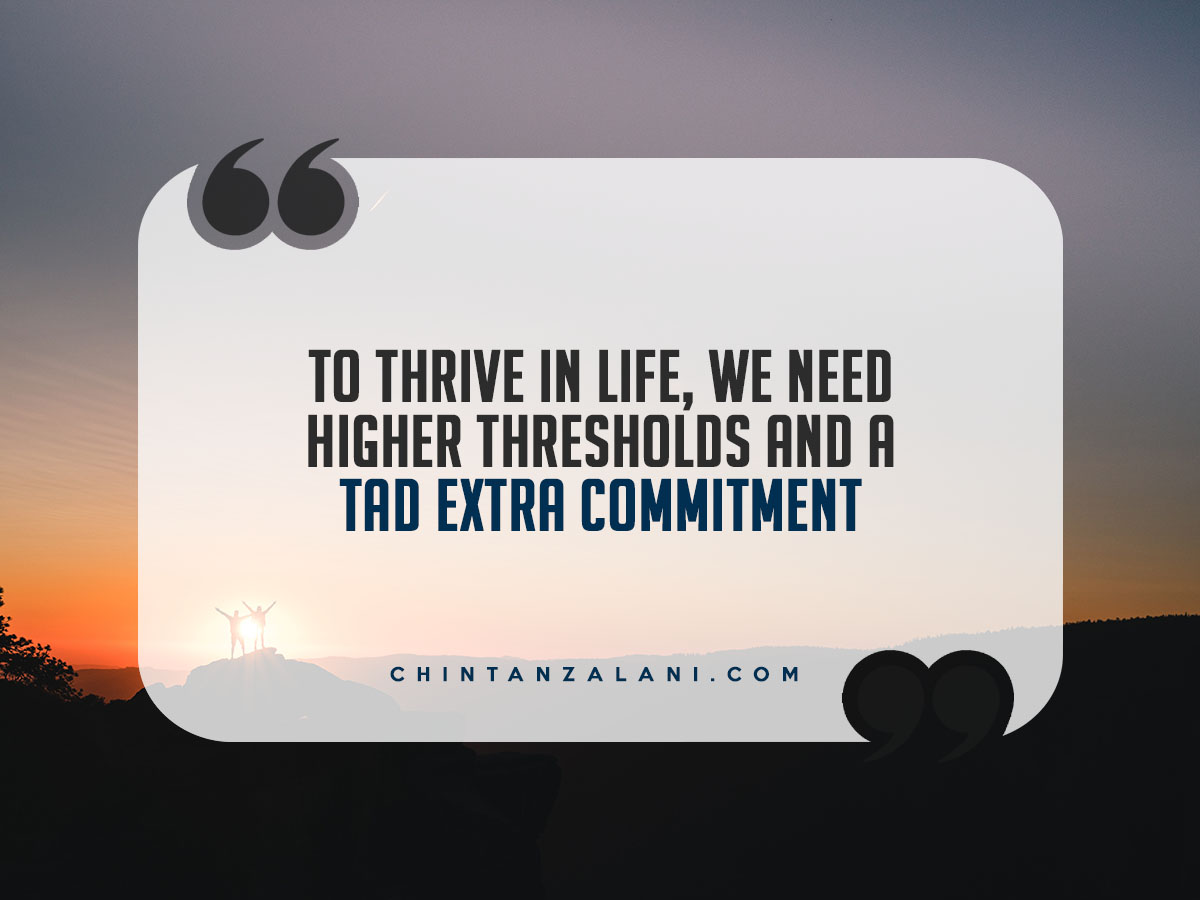
Why?
Let me take help from material sciences.
Physicist dude Robert Hooke studied the elasticity and deformation of the shape and size of an object.
He found that stress applied to an object shares a linear relationship with the resulting strain, within certain elasticity limits.
- A small force can cause the object to reach a new equilibrium state. Once the force is withdrawn, the object will return to the original state.
- A large force can lead to permanent deformation and complete fracture of the object.
- Of course, different objects have different kinds of elasticity. Within elasticity limits, the deformation is reversible.

The elastic range of material ends when an object reaches its yield strength. Metals like Nickel Titanium are known to have large elastic deformation ranges.
For life, my suggestion to you is: have a high yield strength.
If trivial events lead to permanent deformations in your relationships and life, then you’ll have a hard time. And you’ll make many false starts.
After a crisis, the choice you make determines the future course of your identity. Don’t lower your elasticity and limit your life experiences.
Be like Nickel Titanium and recoil after most of those (seemingly) huge events; don’t attach meaning to them.
